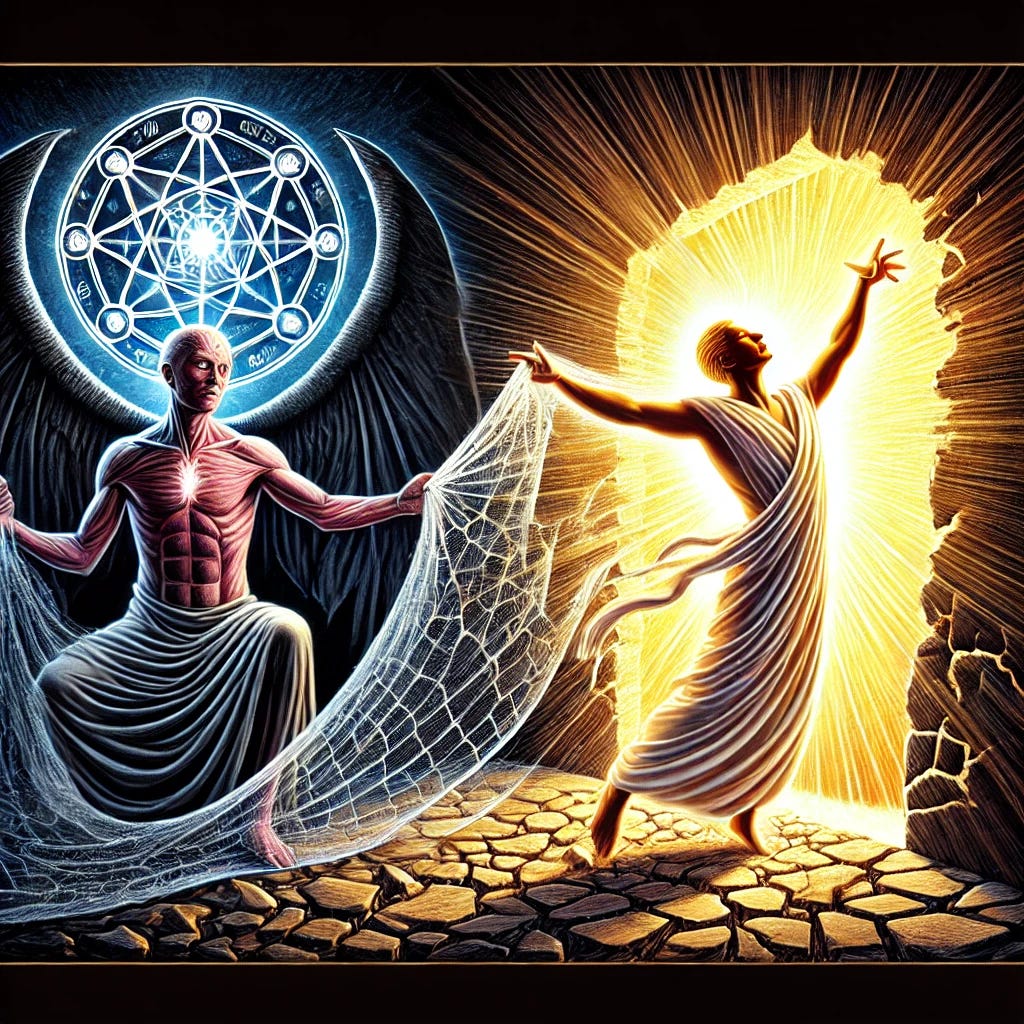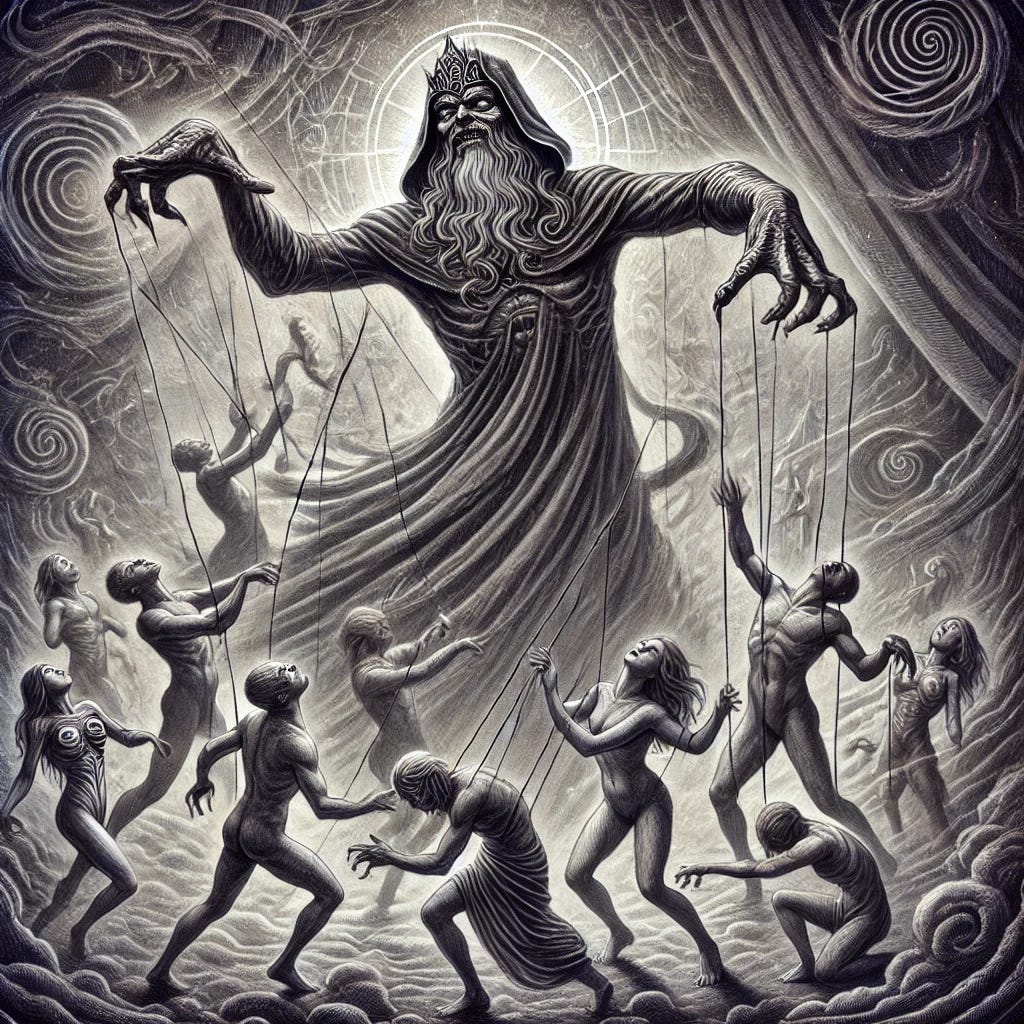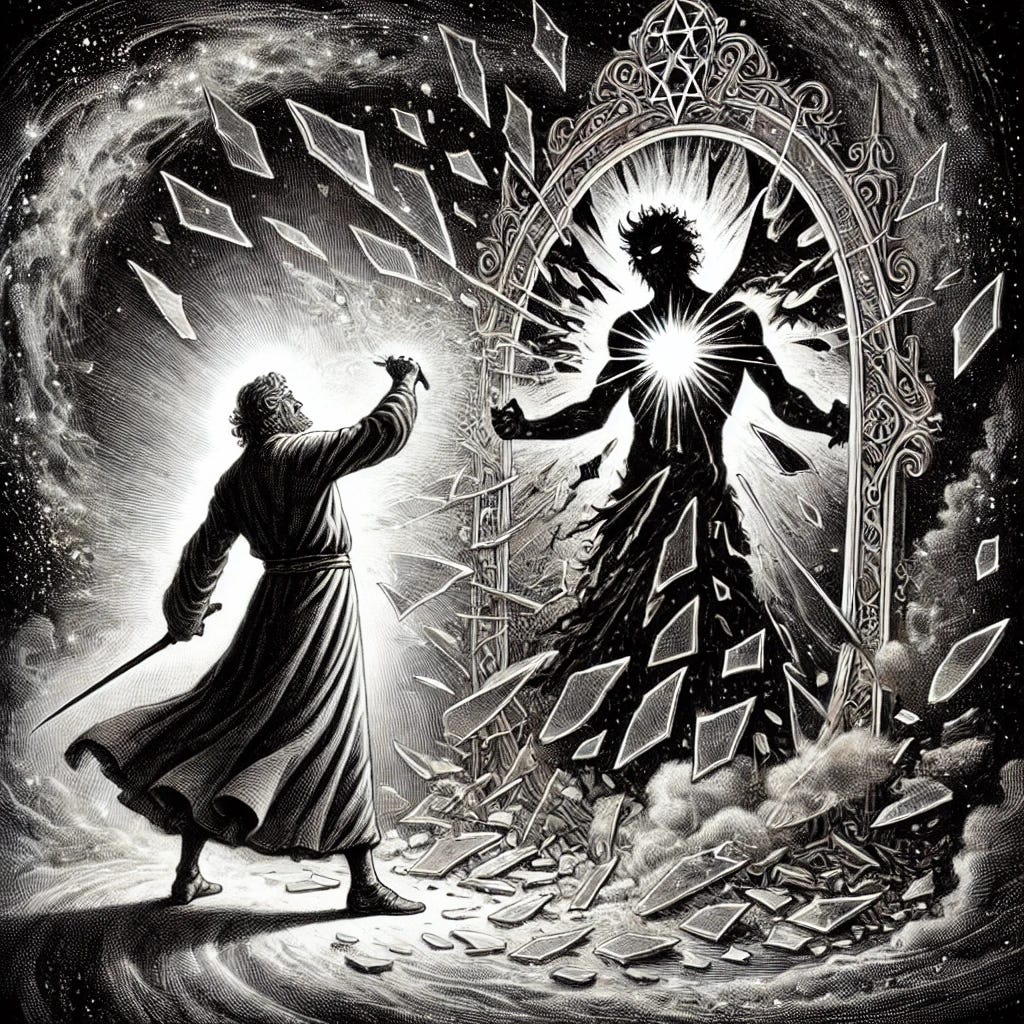Fighting Fire with Fire
Promulgating the Gnostic Creation Myth
In recent years, my approach to anti-theism has evolved from mere critique to a more active engagement in what I consider a subversive cultural endeavor. As I have grappled with the deep roots of theism in society, I came to recognize that simply pointing out the flaws and harms of religious belief is not always sufficient to sway deeply entrenched convictions. Therefore, I adopted a tactic that I would describe as "fighting fire with fire": I have begun to promulgate the Gnostic creation myth, an ancient narrative that reinterprets the Judeo-Christian conception of God, positioning the Abrahamic deity not as the ultimate benevolent creator, but as a trickster god—a flawed and deceptive being who ensnares humanity in ignorance.
The Gnostic tradition, which emerged in the early centuries of Christianity, offers an alternative cosmology that contrasts sharply with the dominant narratives of the Abrahamic faiths. In Gnostic mythology, the material world is the creation of a lesser divine entity, often referred to as Yaldabaoth or the Demiurge, who is depicted as an ignorant and arrogant being. This deity falsely claims to be the one true God and seeks to keep humanity in spiritual darkness, separated from the true, transcendent source of divine wisdom. For Gnostics, salvation lies in awakening to this hidden truth, recognizing the falsehoods propagated by the Demiurge, and striving toward a higher, more enlightened state of being.
By promoting the Gnostic myth, I seek to challenge the traditional portrayal of the Abrahamic deity as an omnipotent and benevolent creator. This narrative serves as a counter-myth that undermines the perceived authority of conventional theism, inviting believers to reconsider the nature of the divine and question the moral framework imposed by established religions. Rather than merely rejecting theistic claims, I aim to subvert them from within, using the structure of religious storytelling itself to plant seeds of doubt and inspire deeper inquiry.
The Rationale Behind This Tactic
The use of the Gnostic creation myth is not an attempt to replace one dogma with another, but rather to employ myth as a tool for philosophical and ethical critique. By presenting an alternative narrative in which the Abrahamic deity is depicted as a trickster figure—manipulative, flawed, and fundamentally imperfect—I aim to expose the limitations and contradictions within traditional theistic beliefs. This approach serves several purposes:
1. Reframing the Theistic Debate: By introducing the idea that the Abrahamic god could be a malevolent or misguided entity, the Gnostic myth disrupts the assumption that belief in such a deity necessarily equates to moral or spiritual truth. It reframes the debate by suggesting that the character of a god is not beyond question and that the qualities attributed to this deity could, in fact, be indicative of tyranny rather than benevolence. This invites a deeper examination of the origins and nature of theistic morality.
2. Undermining the Perception of Divine Authority: The Gnostic portrayal of Yaldabaoth as a being who falsely claims absolute authority casts doubt on the notion of divinely sanctioned commandments or decrees. By presenting an alternative myth in which divine authority is not only questioned but actively contested, I seek to undermine the legitimacy of religious institutions that assert moral dominance based on supposed divine will. It calls into question the foundations upon which these institutions rest, urging individuals to seek ethical principles outside of religious dogma.
3. Encouraging Spiritual Rebellion and Intellectual Freedom: The Gnostic myth serves as a narrative of liberation from spiritual enslavement. It posits that true enlightenment comes not from submission to a higher power, but from recognizing the illusory nature of the supposed divine order and striving toward personal and intellectual freedom. This resonates with the anti-theist stance, which values autonomy and critical thinking over adherence to tradition or dogma. By advocating for the Gnostic view, I hope to inspire a sense of spiritual rebellion against the constraints imposed by orthodox theism.
4. Utilizing the Power of Storytelling to Reach the Religious Mind: Stories are potent vehicles for transmitting ideas, and religious myths have long shaped human cultures and moral frameworks. By adopting a mythic structure to convey anti-theist themes, I aim to engage the same mechanisms that make traditional religious narratives so compelling. The Gnostic myth’s rich symbolism and dramatic cosmology allow it to function as a kind of "counter-sermon," presenting an alternative perspective that can resonate even with those who are not inclined to accept purely rational or secular arguments.
The Ethical Justification for Using This Approach
Some may argue that promoting the Gnostic myth as an anti-theist tactic is ethically questionable, as it involves using myth to oppose what is essentially another set of myths. However, I view this approach as ethically justified because it seeks to empower individuals to think critically about the stories they are told and the beliefs they hold. By presenting a subversive alternative to theistic narratives, I am not advocating for a new form of dogma, but rather for the dismantling of dogmatic thinking itself. The aim is to provoke thought, encourage skepticism, and foster a culture where questioning authority—whether human or divine—is seen as a virtue rather than a vice.
Furthermore, using the Gnostic myth allows me to engage with religious individuals on a familiar plane. For many, religious stories are more than just abstract ideas; they are deeply embedded in their cultural and emotional lives. By reinterpreting these stories through a Gnostic lens, I can reach people who might otherwise be resistant to secular arguments, inviting them to see their own traditions in a new light. It is a form of cultural critique that speaks in the language of religion while advancing a fundamentally anti-theistic message.
In conclusion, promulgating the Gnostic creation myth as a critique of theistic beliefs is a deliberate and strategic choice in my broader anti-theist stance. It allows me to fight fire with fire, using the same tools of storytelling and myth that have long been used to shape belief and enforce religious norms. By presenting an alternative narrative where the Abrahamic deity is depicted as a trickster god, I aim to challenge the ethical and philosophical foundations of traditional theism, advocating instead for a worldview that prioritizes intellectual freedom, moral autonomy, and human flourishing.





